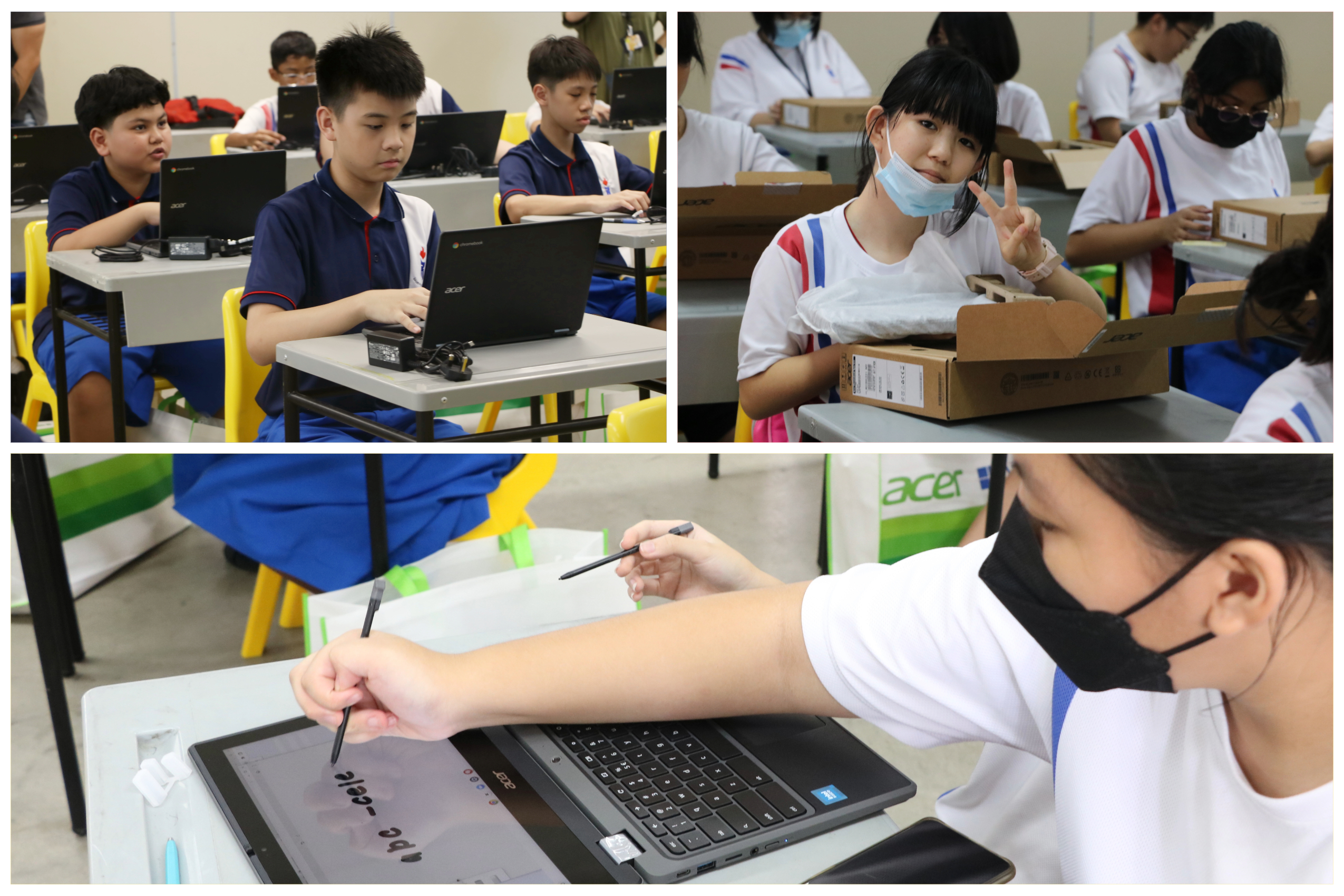Personalised Digital Learning Programme (PDLP)
Enriching School Experience – Developing Digital Learners
Gathering Information and Digital Preparation in Art
The Personal Learning Device (PLD) has been invaluable in Art lessons here at Regent Secondary School. In a unit on Printmaking, for example, our Secondary One students used their PLDs to access a lesson package on the Student Learning Space (SLS) that deepened their understanding of the metaphorical significance of objects as placeholders of experience and memories. Question prompts in the lesson package guided students in reflecting on their own childhood memories and composing still-life arrangements of objects that evoked these memories for them. Having prepared the still-life photos beforehand in this Flipped Classroom approach helped make the transition to actual printmaking a seamless one, and students enjoyed more time for hands-on art making in the classroom.
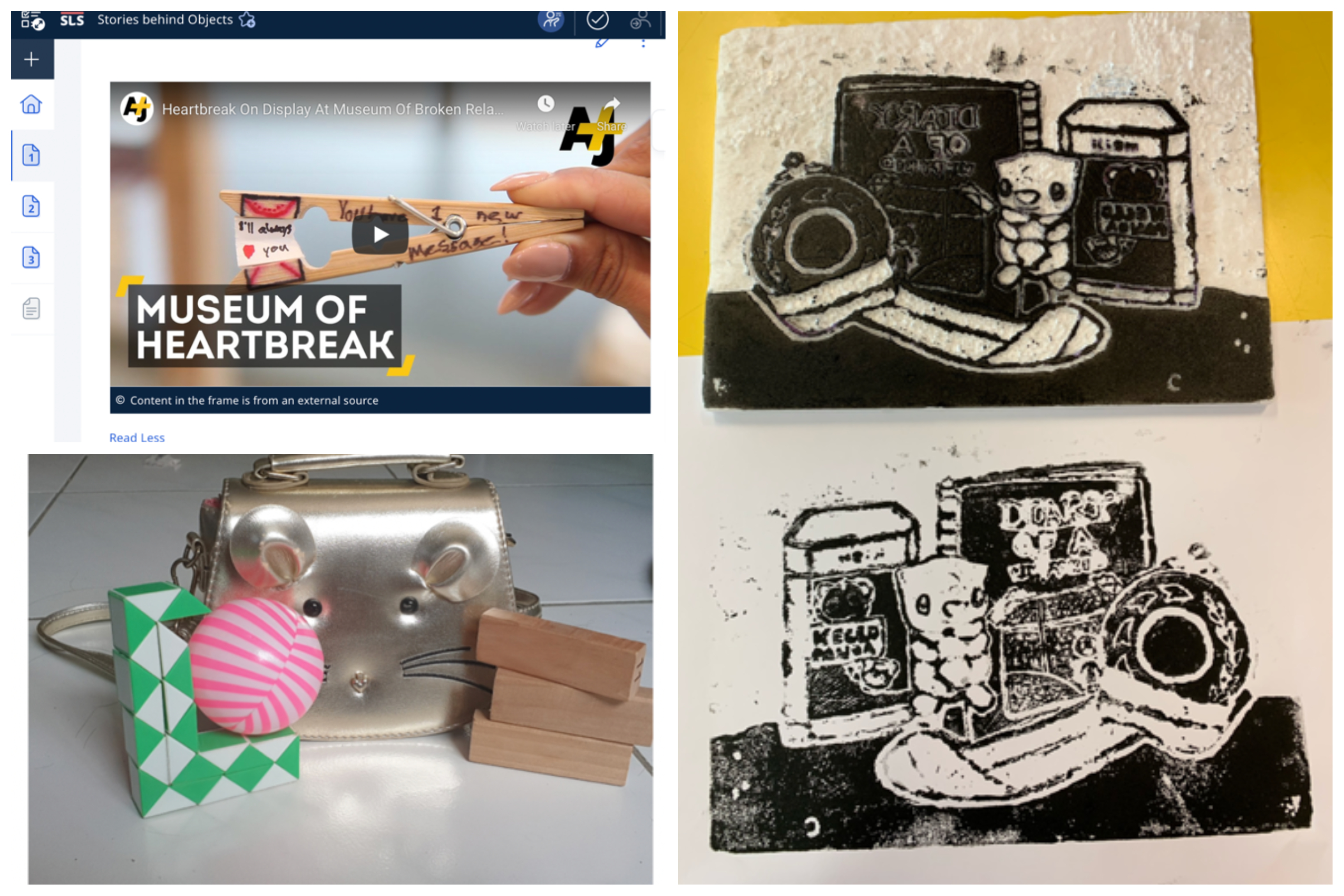
Active Student Participation in Principles of Accounts and Mathematics
Classpoint and Nearpod are some of the tools that are regularly used in our Principles of Accounts lessons to better engage students and monitor their learning. The real-time feedback that students receive through these online check-in quizzes allows students to assess their own learning gaps in a timely and personalised manner. Our teachers have also used Google Forms to create Escape Rooms—an enjoyable mode of hands-on assessment for students to apply what they have learnt. Likewise, in Mathematics, our Secondary Three students learnt to measure the diameter of a chord through an exciting inquiry-based project. They used their PLDs to watch an explanatory video on the concept online and worked in groups to apply their learning using GeoGebra and other hands-on materials. Students also learn to use flowcharts as an effective way to visualize and apply computational thinking concepts, helping students understand the steps involved in solving mathematical problems.
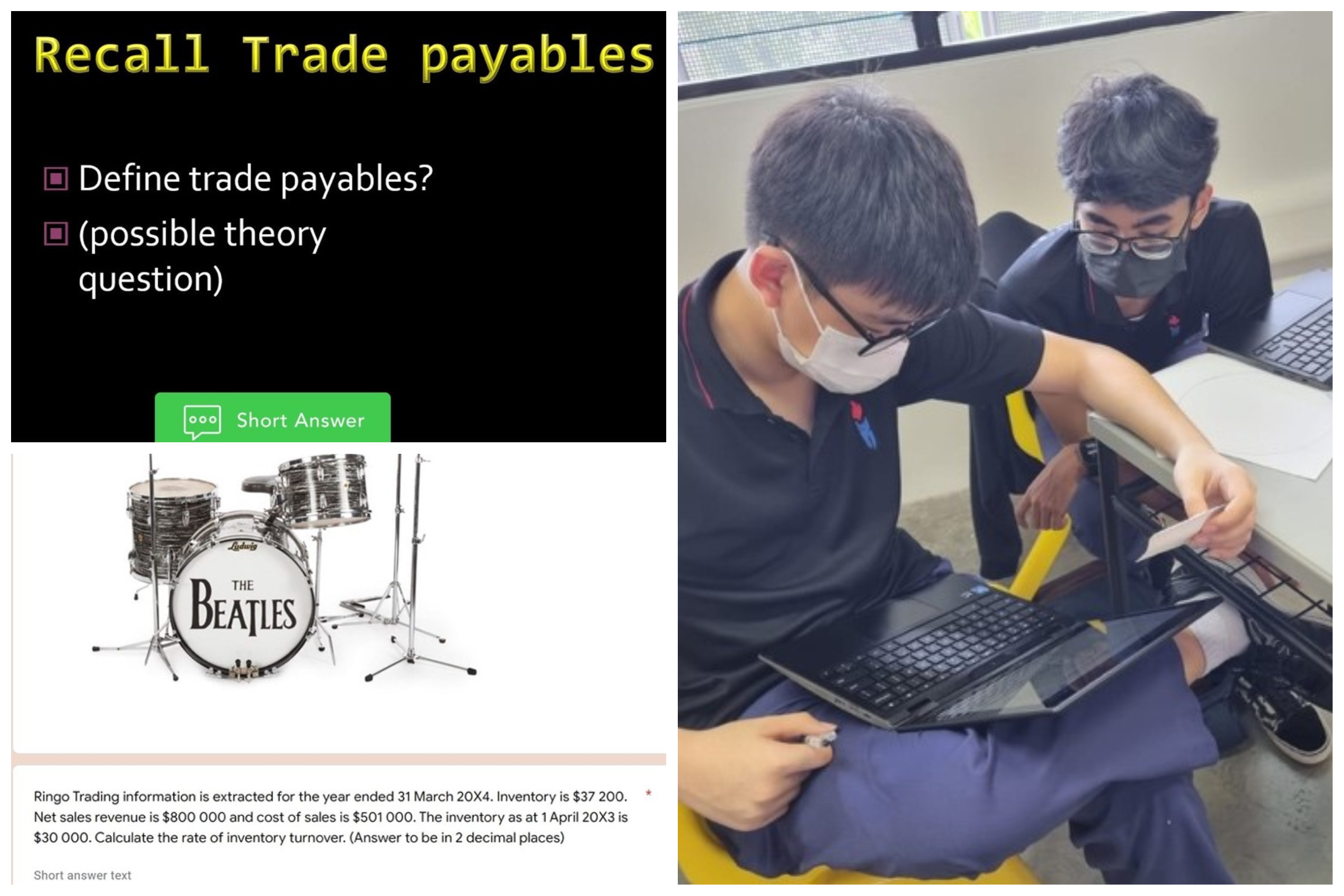
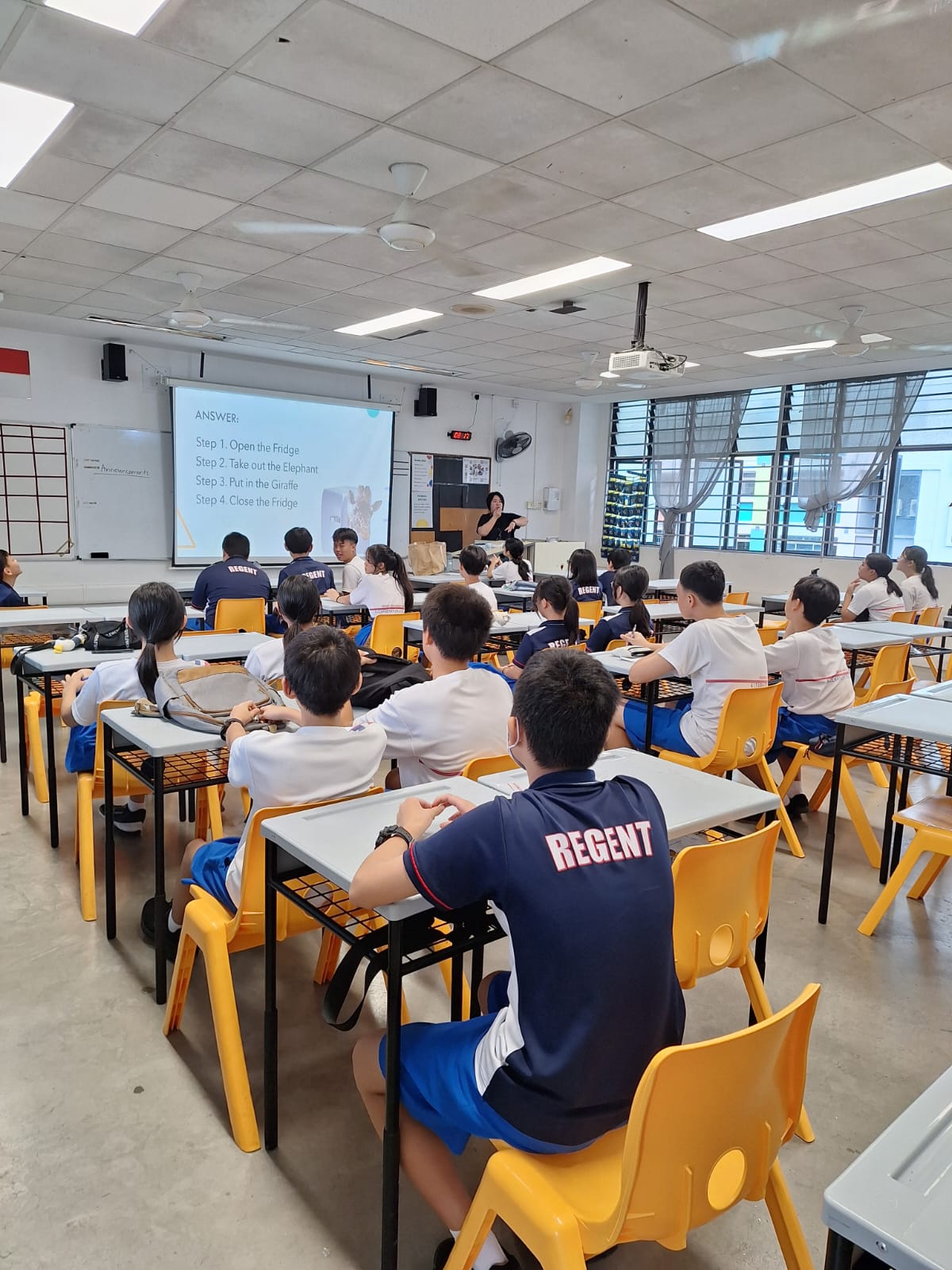
Collaborative Writing in English Language
Google Workspace features prominently in Regent Secondary School’s English Language curriculum. For example, in a unit on Situational Writing, students worked in teams to develop and organise their ideas for the essay, using the search engine to gather information about the various topics assigned. Googling for primary sources such as images and videos on their own helped make the research process more tangible for students, and they were able to craft rich sensory descriptions to enliven their writing. Through the activity, students became more confident and adept users of the PLD, employing tools such as Google Docs and Google Sheets to jot down and share their ideas with their teachers and peers.
Collaborating on Research using Google Slides in Science
Researching and building a prototype in Science often requires much collaboration and our young scientists at Regent Secondary School have learnt to do just that with Google Slides on their PLDs. In a recent unit on water filtration methods, our Secondary One students used Google Slides to outline group roles and brainstorm ideas. They also learnt how to use online bookmarking tools to gather information for building their water filters. The project culminated in an enriching sharing session using the digital posters they created with Google Slides to synthesise their learning.
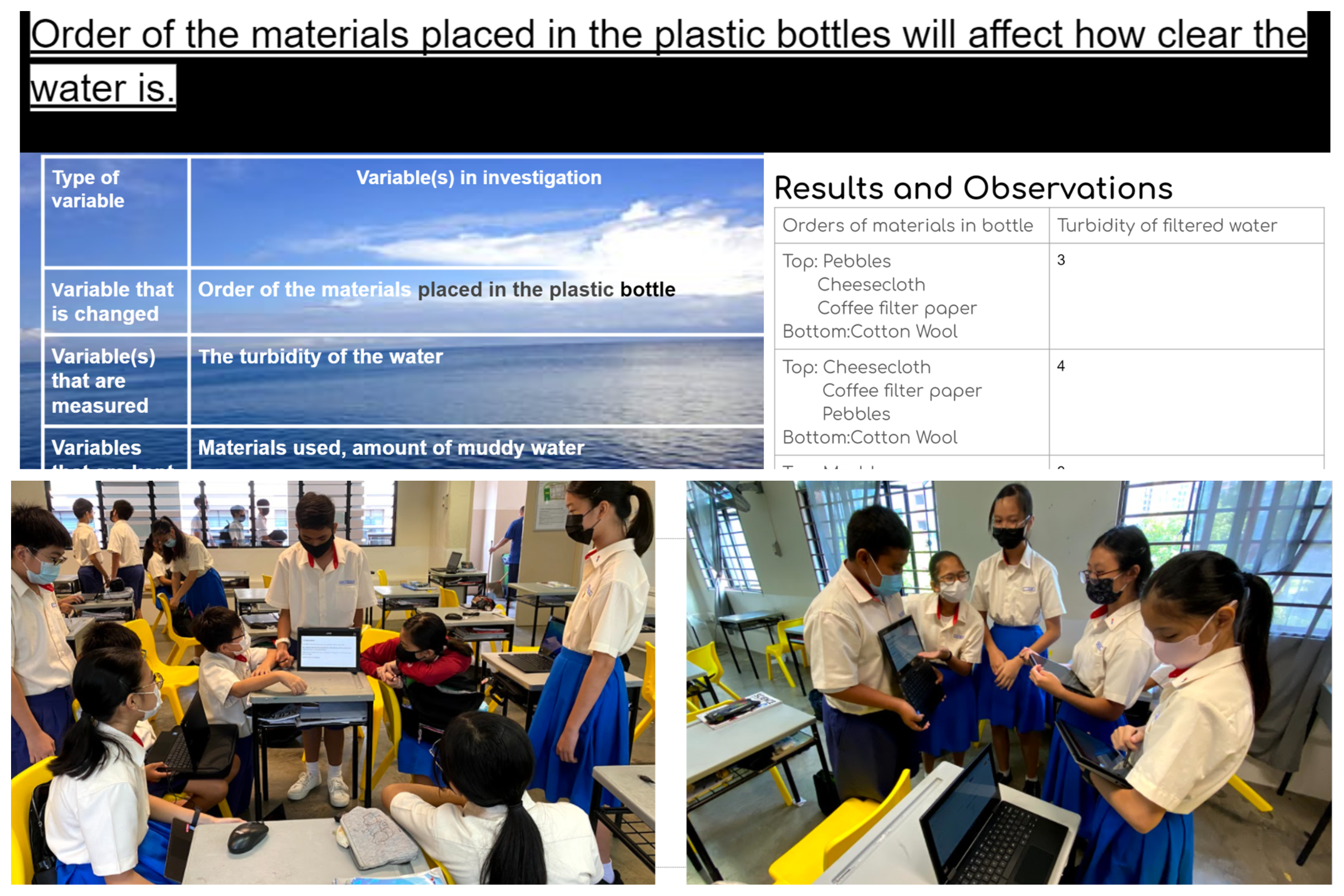
Learning and Perfecting Technique in Physical Education
The use of a Blended Learning approach in PE lessons enables students build conceptual understanding of game concepts in sports. To learn more about how the Drop Shot and Smash are used to create and attack space in Badminton, our Secondary Two students worked on bite-sized theory lessons on SLS that they then learnt to apply during hands-on sessions in PE. This helped to bridge the theory-practice gap and allowed for more face-to-face instructional time to be spent on honing students’ skills and confidence in the sport.
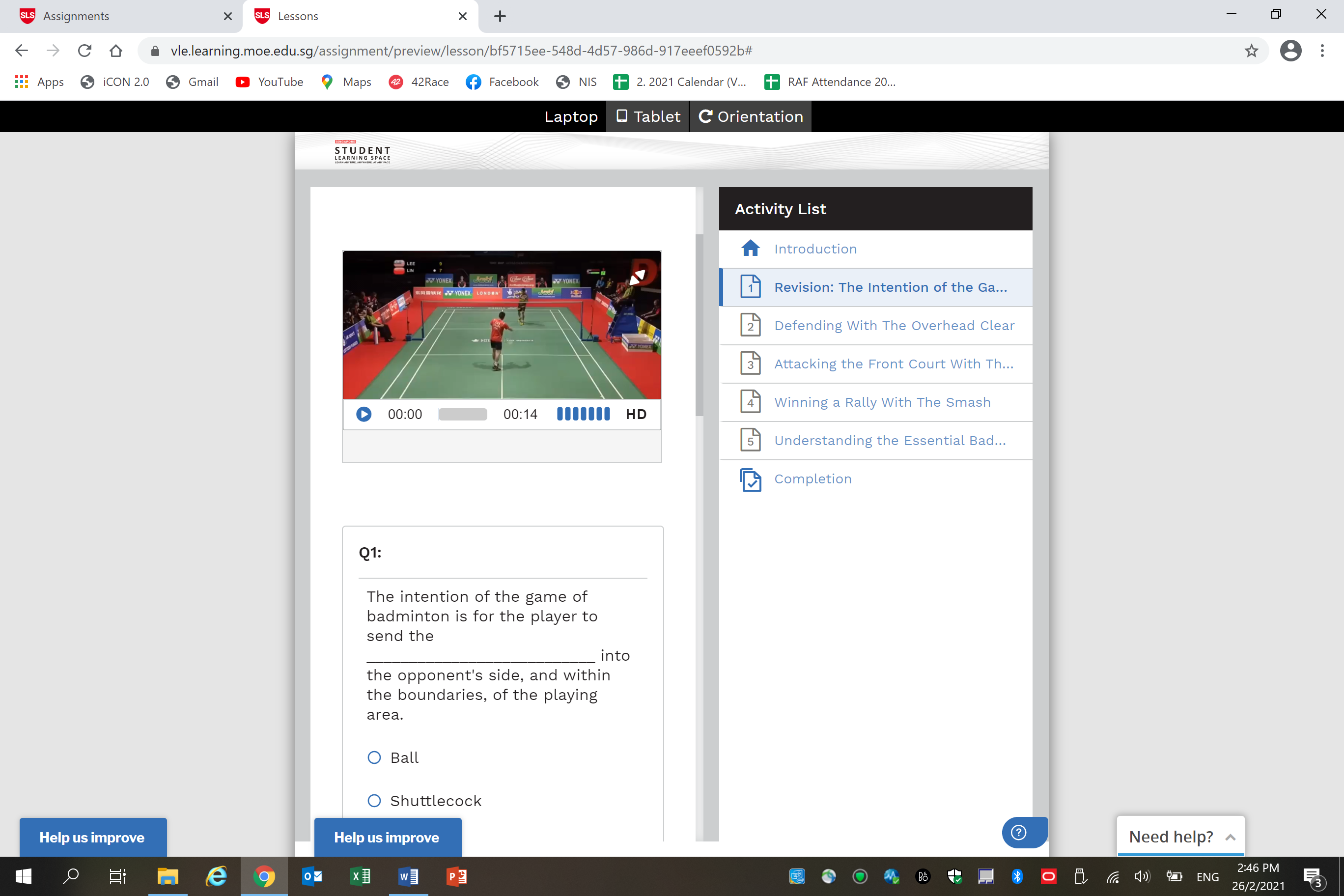
Student Quotes
I enjoy using the Chromebook as it is better than writing with pen & paper. The lessons are interesting because we get to do our own research using our devices. It is such a dream to be able use our devices in class! - (Chester, 1-Pride)
Having inquiry-based lessons with our Chromebooks in class is interesting. I think that with these lessons, we are able to better understand how the concepts learnt are used in real life and this helps us to better appreciate the lesson material. - (Weng Hin, 3-Empathy)
Personal Learning Devices (PLD) Distribution
The MOE National Literacy Programme aims to equip all students with the necessary skills and competencies to thrive in the digital age.
Regent’s PDLP Vision for Students are to develop them into:
1. Self-directed learners who Manage and monitor their own learning with confidence
2. Critical thinkers who Navigate for information with discernment
3. Collaborative learners who Connect with peers to co-construct knowledge
On 26 March 2024, all Secondary 1 students receive their ACER Chromebooks. With the students on-boarding programme completed, both students and teachers will enhance teaching and learning with the use of personal devices for more active, collaborative lessons based on sound e-pedagogical principles.
